Soil Conditioners
Carrier Based CONSORITA
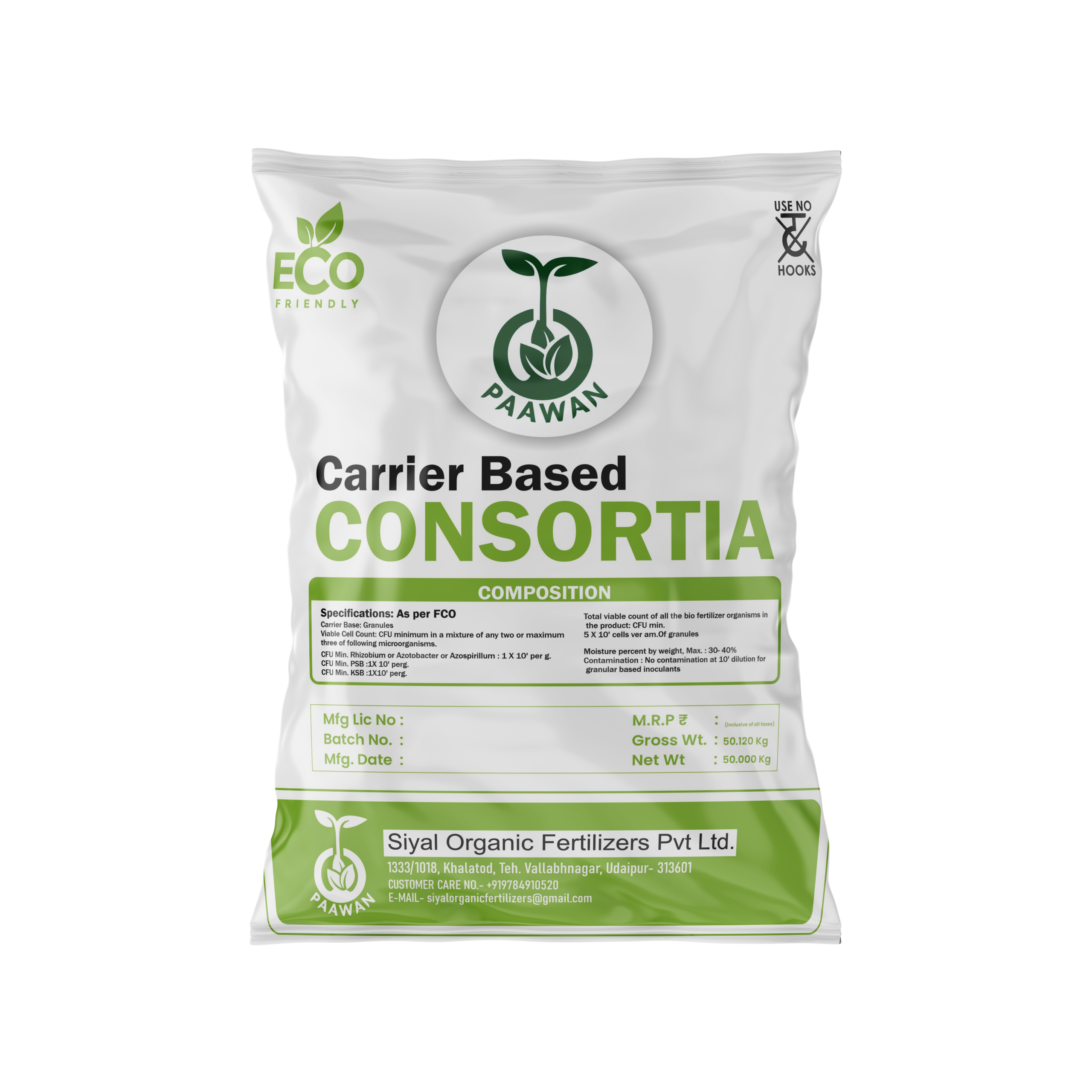
Product Description:
Siyal Organics Carried Based Consortia is a Bio fertilizer which is available in powder form, It is a type of biofertilizer that contains a mix of beneficial microbes, helps in improving the NPK in the soil and also increases the Soil fertility which helps in the overall growth of the crop.
Work of NPK Bio Consortia
Bio Npk Consortia helps in overall plant growth by:
Fixing Nitrogen: Some of the bacteria in the consortia, like Azotobacter, can capture nitrogen from the air and convert it into a usable form for plants. This reduces dependence on chemical nitrogen fertilizers.
Solubilizing Phosphorus and Potash: Other microbes in the mix can dissolve phosphorus and potash that are tied up in the soil, making them more available for plants to absorb. This improves nutrient uptake.
Promoting Plant Growth: The consortia can also produce substances that stimulate plant growth, such as hormones and vitamins. This can lead to stronger roots, better germination, and increased yields.
Improving Soil Health: By promoting microbial activity, NPK bio consortia can help improve soil structure, aeration, and water retention. This creates a healthier environment for plant roots.
Target crops of NPK Bio consortia
It can be applied to all types of crops like Sugarcane, Paddy, Tomato, Chilli, Redgram, Maize, Millets, Soybean, Cotton, and many other fruit and vegetable crops.
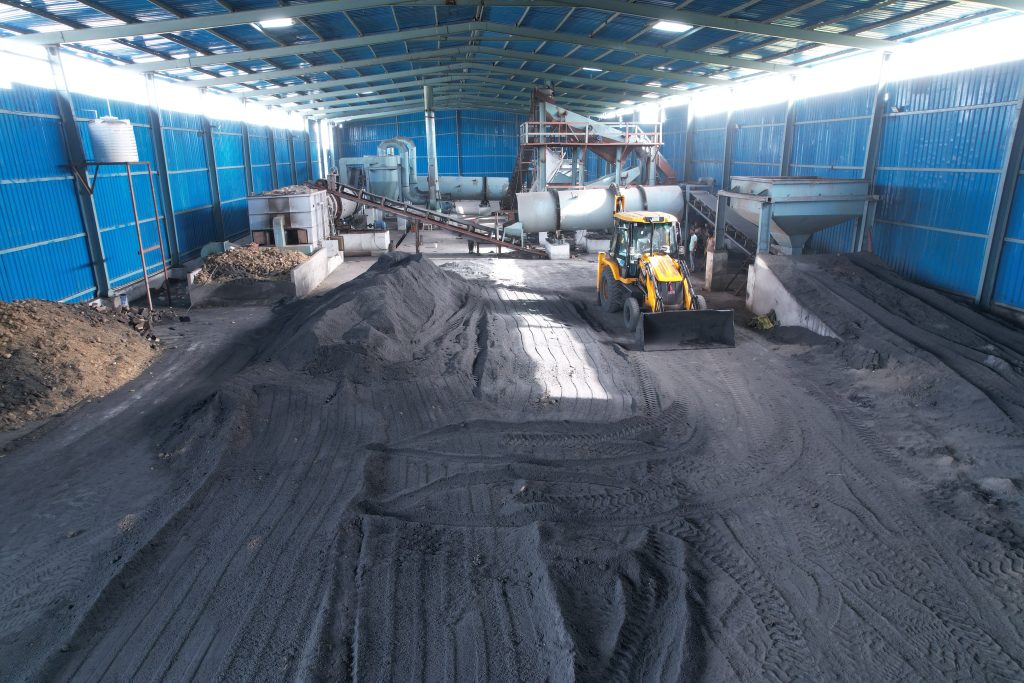
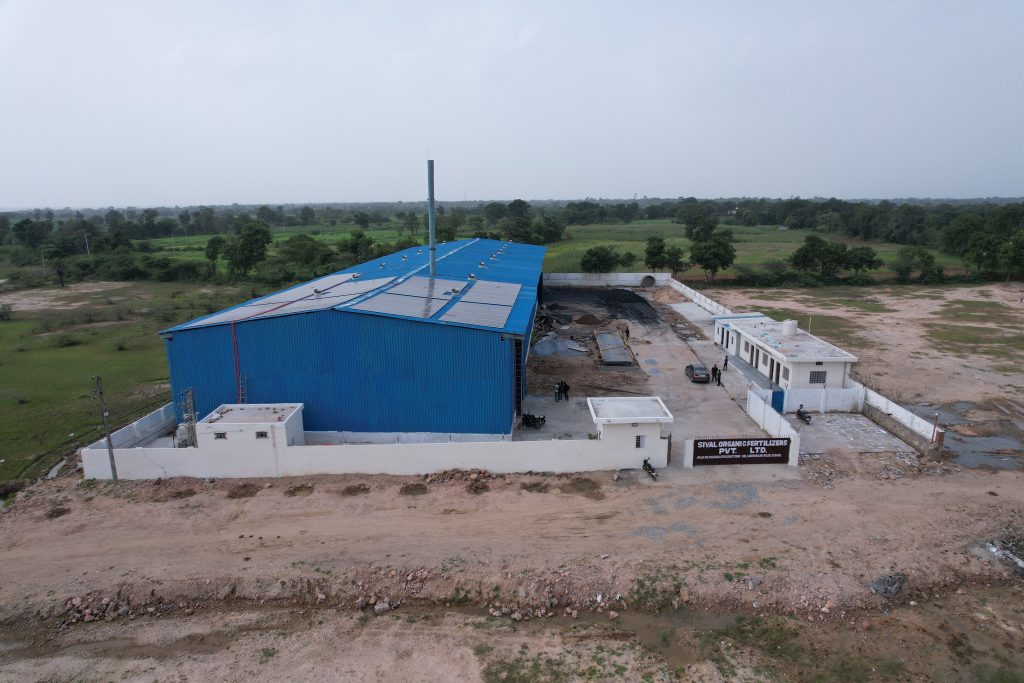
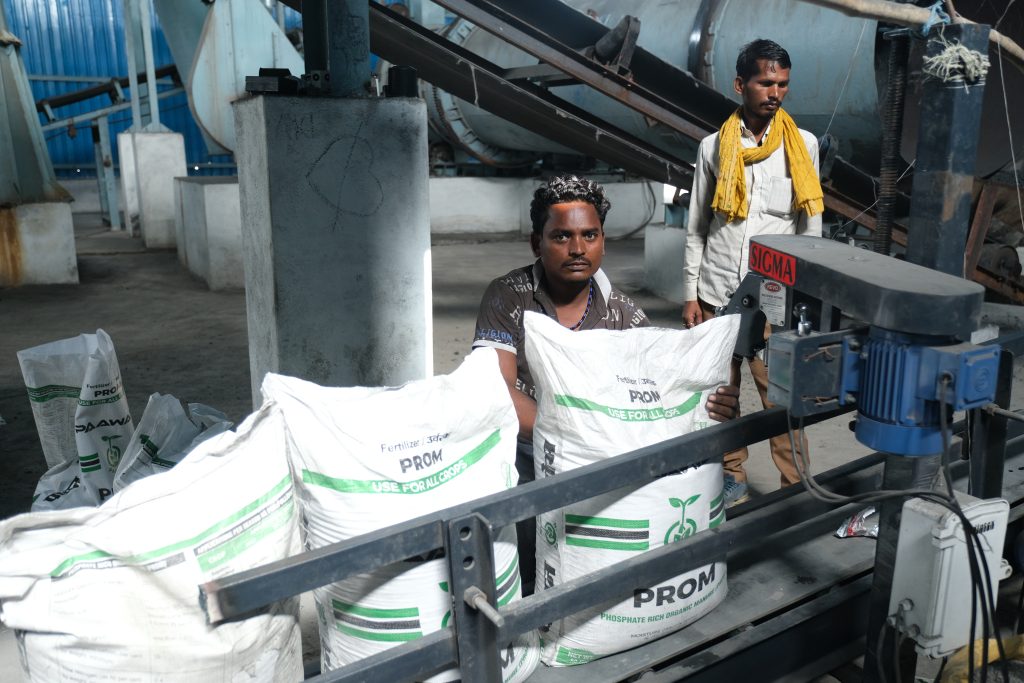
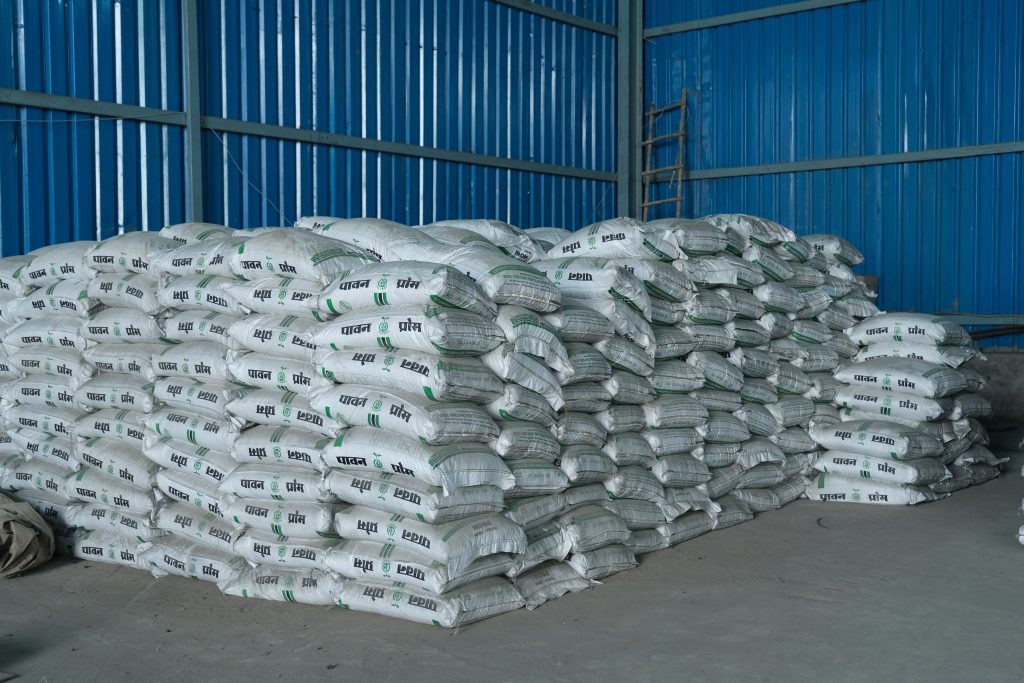
Dosage
For both soil Application and spraying – 1.5 to 2 kg per acre
Benefits of using NPK Bio Consortia
Provides essential nutrients: NPK stands for Nitrogen, Phosphorus, and Potassium, the three main nutrients that plants need for healthy growth. Bio consortia contains beneficial microbes that can help make these nutrients more available to plants.
Improves soil health: By promoting beneficial microbial activity in the soil, Bio NPK Consortia can help improve soil structure, drainage, and fertility. This can lead to healthier plants and increased crop yields.
Reduces reliance on chemical fertilizers: Bio NPK Consortia can be an alternative to chemical fertilizers. By promoting natural nutrient cycling in the soil, it can help reduce the need for synthetic fertilizers.
